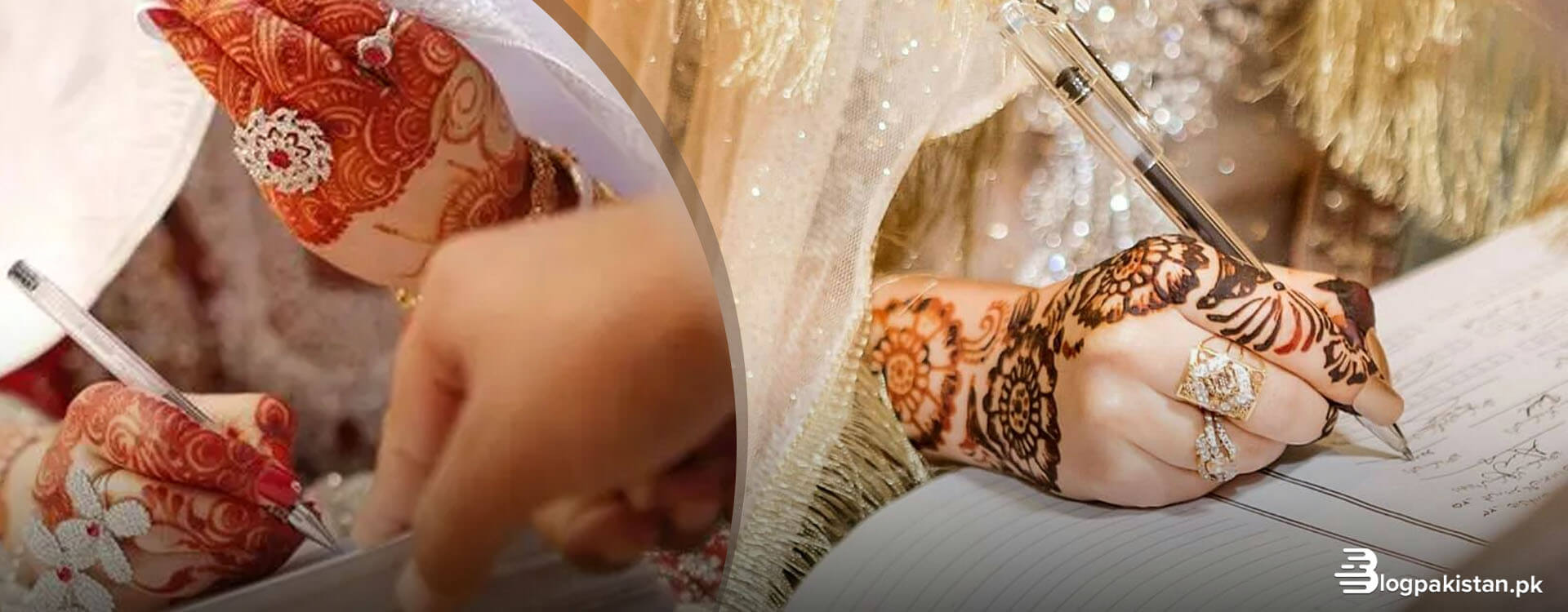A recent study has shown that approximately 86% of Nikah registrars in Lahore believe that brides lack the ability to negotiate the terms of their nikahnama.
The study on women’s marriage rights in Punjab has revealed significant concerns among nikah registrars (NRs) regarding brides’ negotiation skills for their nikahnamas (marriage deeds).
Conducted by the Centre for Human Rights (CFHR) in partnership with Musawi and the National Commission for Human Rights (NCHR), the study aims to assess and address the gaps in the existing legislative and institutional framework that hinder women’s access to and implementation of marriage rights in Punjab.
The data was shared on 8th August at the launch of “Diagnostic Study of Nikkahnamas in Punjab: A Review of Women’s Marriage Rights (Diagnostic Study).”
A Study of Over 1,100 Nikahnamas
The study involved the review of 1,100 nikahnamas and interviews with 105 NRs in 14 union councils of Lahore and Pakpattan. The research indicated several key issues.
For instance, in Pakpattan, 58% of nikahnamas lacked the bride’s CNIC details, and only 8% included the right to a monthly allowance. Moreover, perceptions among NRs appeared to be problematic, with 60% in Pakpattan considering consent given under duress as valid for marriage purposes.
The study also highlighted concerns related to the enforcement and implementation of existing laws, such as the Punjab Muslim Family Laws Amendment 2015.
This amendment disallows the omission or blank columns on the nikahnama. Additionally, certain perceptions, beliefs, and understanding of NRs, limited oversight and accountability, and inconsistencies in nikahnama formats were identified as challenges impacting women’s marriage rights.
The study’s findings underscore the significance of implementing existing laws effectively and promoting awareness of nikahnama clauses and women’s marriage rights across Pakistan. NCHR Chairperson Rabiya Javeri Agha emphasized that the crossed-out columns on the nikahnama are meant to protect women’s rights and should be adequately filled.
A notable finding is that 58% of nikah registrars believe that Haq Mehr — an obligatory payment made by the husband to his wife at the time of marriage — is not a mandatory requirement for a valid nikah.
Furthermore, 6% believed that child marriage is legally valid if the guardian gives permission, and 40% believed that Haq Mehr is not the sole property of the wife.
Safeguarding Women’s Rights
Experts like Tahera Hasan and Musawi Fatima Yasmin Bokhari echoed the importance of understanding and properly filling nikahnamas for safeguarding women’s rights.
The study’s author, Sevim Saadat, highlighted the implications of missing information in nikahnamas, such as the age of the bride or CNIC, which could lead to unintended child marriages.
Lahore High Court’s Justice Jawad Hassan emphasized the critical role of the nikahnama in defining the rights of the parties involved. The study aims to enhance awareness and contribute to the preservation of women’s marriage rights in Pakistan, ultimately preventing illegal practices like child marriage.















